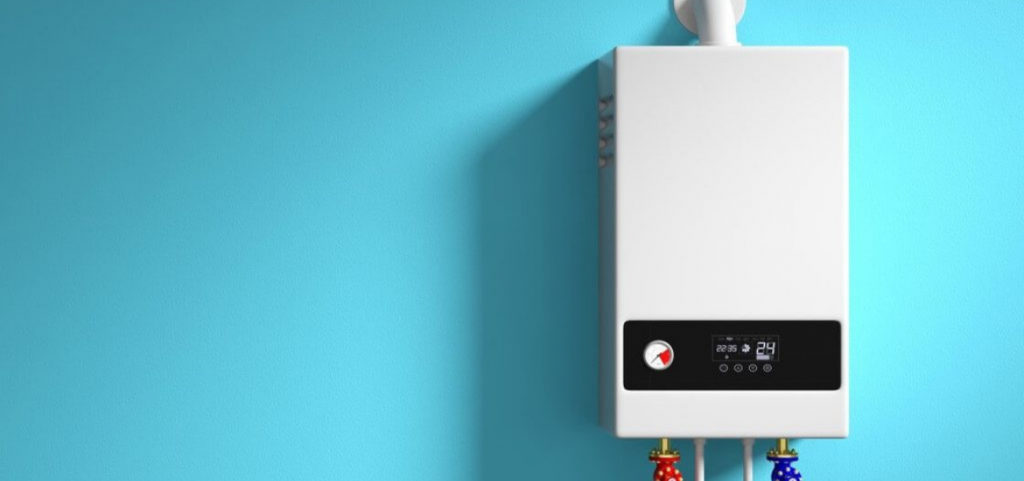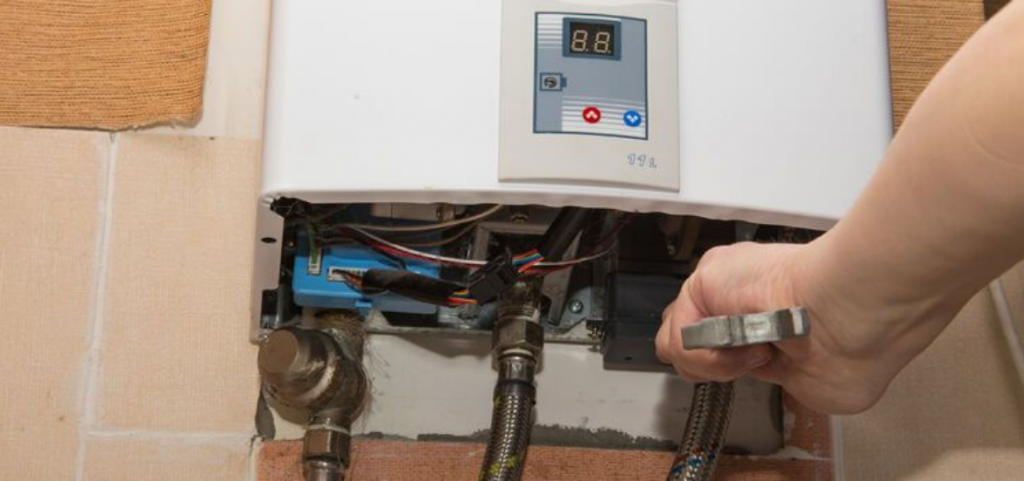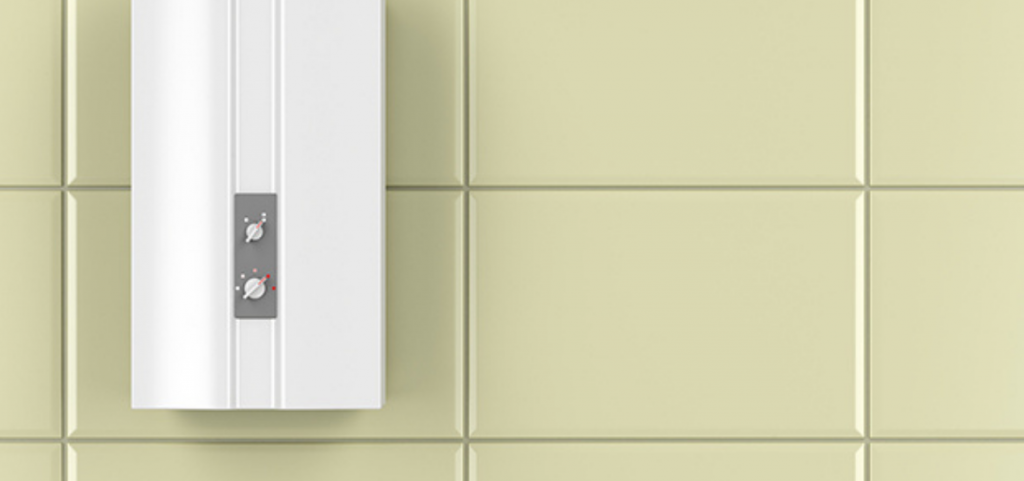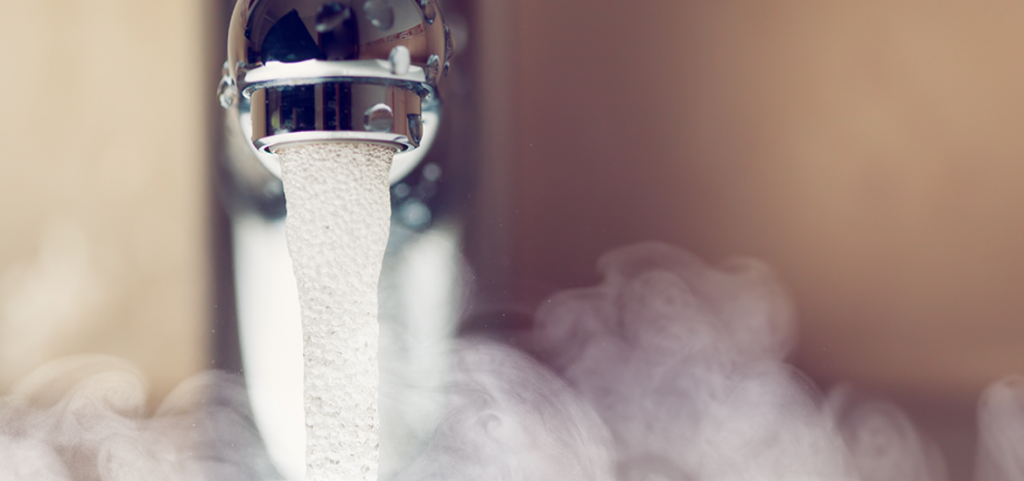
Featured Image: Fresh Water Systems
Tankless water heaters are becoming popular across the globe thanks to their advantages. No system is perfect though, and when it comes time for you to upgrade to a new water heater, you need to weigh up the pros and cons.
We’ve spoken to some hot water experts and collected the pros and cons of tankless water heaters that you need to know before you commit.
Pro: Only Pay for the Hot Water You Use
One of the biggest tankless water heater advantages is that their running costs are cheaper. This is because you only pay for the water you heat.
Traditional water heaters heat up a whole tank of water and keep it warm, regardless of how much hot water you actually use. This is why it’s so important to get the right-sized tank so you’re not heating more water than you need.
Tankless water heaters, however, only heat water when you turn the hot water tap on. You could save between 8 and 34 per cent of your water heating energy with a tankless water heater depending on your hot water usage.
With water heating accounting for 18% of your home’s energy use, your energy bill could be 6.12% cheaper with an instant hot water system.
Con: More Costly Upfront
Compared to traditional storage tank hot water systems, tankless units are more costly to purchase upfront. A tankless water heater tends to be almost twice as expensive to purchase as conventional water heaters. That’s not including installation!

Choate’s HVAC
Pro: Never Run Out Of Hot Water Again
Are you tired of having to wait for your storage tank to reheat the whole tank after everyone in the house has had a shower except you? You won’t have that problem with a tankless water heater.
Tankless water heaters heat water as it is passed through the unit. So long as the hot water tap is turned on, water will continue to be heated by your tankless water heater. It’s essentially an endless supply of hot water!
Con: Tankless Water Heaters Are Limited By Their Flow Rate
While you don’t have a finite amount of hot water with tankless systems as you do with storage types, you are limited by a maximum flow rate. This can range from four to eight gallons per minute (GPM).
If you use your shower, washing machine and dishwasher all at once, you might exceed your unit’s flow rate. Instead of your shower suddenly running cold, the hot water will be spread out between all the appliances and fixtures. This results in only lukewarm water, with an inconsistent temperature.
The solution to this problem is to spread out your hot water use, rather than using all your hot water appliances at once. Alternatively, you could have more than one water heater if water demand is so high.
Pro: More Energy-Efficient And Environmentally Friendly
Because you’re only heating the water that you use, a tankless water heater is more energy-efficient than a traditional water heater. It takes a lot of energy to keep a tank full of water hot!
Alongside energy efficiency, you’ll usually find increased environmental friendliness. Water heating is the largest contributor to residential greenhouse gas emissions. An electric storage tank hot water system releases 16 to 27 per cent more greenhouse gases than a tankless type in a three-person house. Gas instant hot water systems are even better.
Upgrading to a tankless system will not only help save you money, but you’ll be doing the environment a favour too.
Con: Hot Water Isn’t Instant
Despite the name, instant hot water system, you don’t actually get hot water instantly. Because you don’t have any stored hot water, it takes some time for your water heater to heat your water from cold to the set temperature.
The cold water you feel is what was left in the pipes from the last time you turned the hot water on. It doesn’t take long for your water to become hot, thankfully. This does mean you’ll waste a small amount of water waiting for it to heat up, however.

Off Grid Permaculture
Pro: Less Risk Of Leaks And No Chances Of Explosions
Storing hot water isn’t as simple as just keeping it in a sealed tank. A storage tank can leak water as it corrodes and a faulty pressure relief valve puts you at risk of it exploding.
These risks are eliminated from tankless water heaters, as they don’t have the challenge of storing water.
Con: Inconsistent Temperatures
You’ll often experience inconsistent temperatures if your tankless water heater’s flow rate is too small. For reference, here are some common flow rates of plumbing fixtures and appliances:
faucets – 0.5-1.5 GPMbathtub faucet – 4-7 GPMshower head – 1.5-2.5 GPMdishwasher – 1-1.5 GPMwashing machine – 1.5-3 GPM
Given that you’ll find tankless systems with flow rates between four and eight GPM, you need to consider how much hot water your home uses at once.
Pro: Saves Space
One of the pros of tankless water heaters is their compact size. Unlike traditional water heaters which have a bulky storage tank, tankless water heaters are only a small, wall-mounted unit. This makes them a great option for homes with only a small amount of land or apartments.
Not only that, but you no longer need to look at an ugly storage tank!
Con: Tankless Water Heater Installation Is More Specialised
All the benefits of tankless water heaters are thanks to their advanced design and features. This all comes with a more specialised installation, however.
If you’re installing a tankless water heater where a storage tank once was for the first time, you’ll likely need new wiring, piping or gas lines. Some manufacturers also require that a water softener is installed to prevent mineral buildup in the system. Your warranty could be voided if this isn’t installed.
Storage tank systems have been around for much longer too, so more plumbers are familiar with these systems too. This means it’s even more important to ensure the plumber who is installing your tankless water heater is fully licensed and has plenty of industry experience.

KTAR News
Pro: Longer Lifespan
While there are measures in place to prolong the lifespan of a storage tank, storing water in a metal tank only works for so long. Eventually, the tank will corrode and you won’t be able to use it to heat water anymore. More often than not, this is the reason why your hot water system needs to be replaced.
The benefit of not having to store water in the first place means this isn’t a problem for tankless water heaters. A tankless water heater will have a longer lifespan than a storage hot water heater.
Con: Requires More Maintenance
All kinds of water heaters require regular servicing to work efficiently and prevent costly hot water system repairs. Because of how tankless hot water heaters work, they tend to require more maintenance than a traditional water heater.
The system should be flushed annually to remove any mineral buildups which can cause blockages and stop internal parts from working. The filters, fans and other components also need to be checked to ensure they are working as they should.
This is no DIY job and so one of the cons of tankless water heaters is that you’ll need to hire a licensed plumber for this. If you don’t follow the service requirements as specified by the manufacturer, your warranty might be voided too.
Pro: Longer Warranties
Remember how we said tankless water heaters tend to last longer? This often means manufacturers provide longer warranties on these systems too.
Provided you follow the manufacturer’s instructions, some warranties last up to 20 years! So if anything goes wrong, you won’t be the one to foot the bill.
Con: No Power, No Hot Water
A major con of tankless water heaters is that if the power goes out, you’ve got no hot water. Even gas-powered tankless water heaters require electricity to operate a control panel.
This is one area where conventional water heaters have a major advantage over tankless systems. In the event of a power outage, a gas water heater will continue to heat water and an electric system will at least store whatever hot water is left in the tank.

Out Of This World Plumbing
Pro: Clean Hot Water
A big challenge for storage water heaters is the cleanliness and safety of the stored water. If the tank corrodes, your water will end up rusty and have a brown-red colour. This is due to the iron content in the water.
Thankfully, rusty water isn’t harmful to you but isn’t pleasant to look at. It’s best not to consume this water though, in case the cause is not a corroding water heater but something else.
The major concern with stored water is the risk of bacterial growth. Storage tanks should be set to 140°F (60°C) to stop this. Else, you run the risk of bacteria such as Legionella pneumophila growing in the tank. This can cause Legionnaires’ Disease and other health problems.
Because a tankless water heater doesn’t store any water, this risk of rust or bacteria is eliminated. You can rest knowing your hot water is clean from a tankless water heater.
Con: Difficult to Get Lukewarm Water
For a tankless hot water heater to turn on, a set minimum volume of water needs to flow from a faucet. This means there’s a bit of a jump between cold and the coolest warm water where the system turns on. Those of us with extremely low-flow faucets and shower heads can struggle to trigger the water heater to turn on too.
So if you’re someone who enjoys a barely warm shower, you might find it difficult to get this with a tankless water heater. For the vast majority of us who enjoy a searing hot shower, this isn’t a problem.
Pro: Gas, Electric and Solar Models Available
Instant water heaters can be powered by gas, electricity and even solar, so no matter where you are in the world, there’s an option for you. Gas models tend to be the most efficient of the three power sources, but not everyone has access to natural gas.
Solar models harness the power of the sun to heat your water, so you can recoup the additional installation costs more quickly too. When the sun’s not out and there’s not enough energy to heat your water, these systems can have gas or electric boosters to take over the heating power. This means you’re never left without hot water.

Noreus
The Verdict – Are Tankless Water Heaters Worth It?
Tankless water heaters have a range of benefits that make them attractive options for the modern homeowner. They aren’t without their faults, though, and it’s up to you to weigh up all the pros and cons to make the right decision.
Installing a tankless water heater means you get great energy savings, unlimited clean hot water, a longer-lasting unit and so much more. This is at the price of a higher upfront cost, more specialised installation and no hot water during power outages, to name a few cons.
Most homes will get more benefits from a tankless water heater than disadvantages. There are limited circumstances where you might experience more cons than pros with this system, including:
large homes with big hot water demandspeople who like cool/lukewarm showersextremely low flow fixtures are installed that stop the system from turning onupfront installation costs are too much
If you don’t fall into any of these categories, then your home can experience some major benefits by upgrading to a tankless water heater.
The post You Need To Know These Tankless Hot Water Heater Pros And Cons appeared first on Luxury Home Remodeling | Sebring Design Build.
Did you miss our previous article…
https://www.amazingsidingstl.com/?p=625